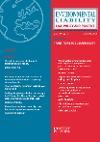Environmental Liability - Law, Policy and Practice - Volume 25 - Issue 6

Special Issue - TRANSITIONS TO SUSTAINABILITY
Editorial
The role of environmental law in the transition to sustainability
OWEN MCINTYRE, University College Cork
Articles
Breathing life into the right of access to environmental information: comparing aims and practice
SEAN WHITTAKER, JONATHAN MENDEL and COLIN T REID
University of Dundee
There is an expectation, embodied by the Aarhus Convention, that the right of access to environmental information will be used to help protect and enhance the environment. Based on the research conducted by the ‘Uncovering the Environment: The Use of Public Access to Environmental Information’ project, the article identifies that the motives of users and the role of proactively disclosing environmental information in practice is misunderstood. The article concludes that this lack of understanding undermines how users engage with public authorities under environmental information regimes
Tackling the plastics pollution crisis through the EU Single-Use Plastics Directive: context, scope and implementation challenges
NOREEN O’MEARA
School of Law, University of Surrey
This article takes a contextual and critical examination of the EU Single-Use Plastics Directive (SUPD) in tackling the crisis of plastics waste pollution. Despite some under-ambition in target-setting, the SUPD will impact governments, business and individuals in transitioning from a throwaway culture to one which takes a more sustainable approach to plastics, where considerations for end-of life environmental impacts are embedded at every stage of value-chains. The SUPD’s true potential will only be realised if it is used as a platform for future, more ambitious measures, and if money generated is reinvested to maximise the universality and consistency of national recycling schemes
Marine Protected Areas in the high seas: the role of regional ocean governance
SARAH RYAN ENRIGHT
University College Cork/Centre for Marine and Renewable Energy Ireland
Regional initiatives for the protection of the marine environment have emerged as an important legal trend in the face of increasing fragmentation of international law. This article discusses recent efforts at the regional level to protect the high seas, which make up more than half of the global ocean yet remain particularly at risk of ecological degradation due to serious governance gaps and weak regulation of human activities. The focus will be on mechanisms with powers to designate Marine Protected Areas in the high seas, in particular Regional Seas Conventions
Unenumerated environmental rights in a comparative perspective: judicial activism or collaboration as a response to crisis?
MASRUR SALEKIN
National University of Ireland Galway
This paper is a comparative study of the judicial pronouncements by the courts of three common law countries recognising and developing the unenumerated right to the environment. The problems with the basis and scope of the right are identified and it is shown that the role of the courts in protecting the environment has transformed from judicial activism to adventurism. Arguing that judicial activism is not a panacea for the problem of environmental crisis, this paper explores the theory of collaboration as an alternative method which offers a new perspective on separation of powers, aiming to make institutional differences a more constructive force
Airports and environmental decision-making: an Irish update
CONOR LINEHAN
William Fry
Over 12 years after the new northern runway at Dublin Airport first received planning permission (in 2007) there is ongoing controversy over different aspects of the procedures and of the content and application of laws authorising the runway’s construction and operation. This article looks at the controversy through the relevant cases, not just to review what legal issues have been raised but across the different legal points of challenge, to see what they tell us about the quality of our overall approach and attention in Ireland to laying down environmental decision-making systems
Addressing marine plastic pollution as a ‘wicked’ problem of transnational environmental governance
OWEN MCINTYRE
University College Cork
The problem of marine plastic pollution represents a very difficult challenge for established environmental law frameworks. For example, it exemplifies the phenomenon of legal fragmentation, both vertical and horizontal. While accumulation of plastic waste in the oceans is a truly global problem, it does not appear that the international community is close to agreeing global conventional arrangements to restrict production of or trade in plastics, nor is it clear that such arrangements might anyway prove effective. However, emerging norms and standards of transnational environmental law (TEL), many informal and voluntary in character, may offer a way forward in addressing this challenge
Climate finance: a Herculean task for the climate transition
CATHERINE MALECKI
Rennes 2 University, France
Promoting climate finance is a Herculean task. However, in the wake of the Paris Climate Agreement signed on 12 December 2015, the European Commission’s long-term decarbonisation strategy proposes that Europe aim for carbon neutrality by 2050. Among the many European initiatives, the EU Taxonomy is the most innovative one with the definition of an ‘environmentally sustainable economic activity’. It is an important milestone. At the same time, the French initiatives (for example the emblematic Article 173 of the French LTECV Act on the Energy Transition for Green Growth and the Paris Marketplace impetus) are going to lay the foundations for a more climate resilient finance
